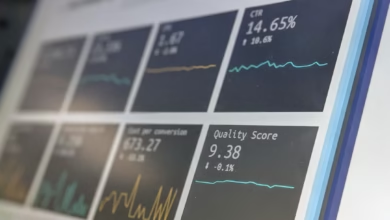Mastering Options Trading: Essential Strategies and Insights for Success in Derivatives Trading

Options trading offers a unique and strategic approach to investing in financial markets, allowing traders the flexibility to buy or sell assets at predetermined prices within a specified timeframe. As a vital component of derivatives trading, options can serve as powerful tools for managing risk, enhancing returns, and even speculating on market movements. This article will delve into the intricacies of options trading, providing a comprehensive guide that covers essential concepts, strategies, and the psychological aspects that influence trader decisions.
In our first section, "Understanding Options Trading: A Comprehensive Guide to Derivatives Trading," we will break down the fundamentals of options, exploring how they differ from other forms of trading such as stock trading, forex trading, and commodities trading. Next, we will reveal "Key Strategies for Successful Options Trading," emphasizing the importance of risk management and technical analysis in crafting effective trading strategies. Finally, we will address "The Role of Trading Psychology in Options Trading," shedding light on how emotional resilience and decision-making processes can impact performance amidst market volatility.
Whether you're engaged in day trading, swing trading, or even high-frequency trading, mastering options trading can open new avenues for profit and risk mitigation. Join us as we navigate through this multifaceted world of options and develop the skills necessary to thrive in today's dynamic trading environment.
- 1. Understanding Options Trading: A Comprehensive Guide to Derivatives Trading
- 2. Key Strategies for Successful Options Trading: Insights into Risk Management and Technical Analysis
- 3. The Role of Trading Psychology in Options Trading: Navigating Market Volatility and Decision-Making
1. Understanding Options Trading: A Comprehensive Guide to Derivatives Trading
Options trading is an essential aspect of derivatives trading that provides traders with unique opportunities to manage risk and enhance their investment strategies. Understanding the fundamental principles of options trading is crucial for anyone looking to succeed in the dynamic world of trading, whether in stock trading, forex trading, or even crypto trading.
At its core, options trading involves contracts that grant the holder the right, but not the obligation, to buy or sell an underlying asset at a predetermined price, known as the strike price, within a specific timeframe. This flexibility makes options a popular tool among traders, whether they are engaged in day trading, swing trading, or longer-term strategies like buy-and-hold.
One of the primary advantages of options trading is the ability to leverage investments. Traders can control a larger position with a relatively small amount of capital, which can amplify potential returns. However, it is crucial to recognize that leverage trading also increases the risks, making effective risk management and trading psychology essential components of a successful trading strategy.
Options can be utilized in various trading strategies, including hedging against market volatility or speculating on price movements. For instance, traders may employ strategies such as covered calls or protective puts to protect their stock positions. Additionally, options can be integrated with other forms of trading, such as futures trading or commodities trading, to create a diversified investment portfolio.
Technical analysis and fundamental analysis are vital for options traders, as they help identify market trends and make informed decisions. By analyzing price patterns, traders can determine optimal entry and exit points, while understanding the underlying asset's fundamentals can provide context for market movements.
Furthermore, options trading is increasingly accessible through online trading platforms, allowing traders to execute trades, monitor market conditions, and analyze data with ease. As the landscape of trading evolves, incorporating advanced techniques such as algorithmic trading and high-frequency trading can further enhance trading performance.
In summary, options trading is a multifaceted discipline that requires a solid understanding of various trading strategies, market analysis, and risk management principles. By mastering these elements, traders can navigate the complexities of options trading and capitalize on the opportunities it presents in the broader context of derivatives trading.
2. Key Strategies for Successful Options Trading: Insights into Risk Management and Technical Analysis
Options trading can be both rewarding and risky, which is why understanding key strategies is essential for success. Two fundamental components that every options trader should master are risk management and technical analysis.
Risk management is crucial in options trading, as it helps traders protect their capital while maximizing potential gains. A few effective risk management techniques include:
– **Position Sizing:** Determine how much of your total capital to allocate to a single trade. This helps prevent significant losses that could impact your overall portfolio.
– **Setting Stop-Loss Orders:** Use stop-loss orders to automatically close a position when it reaches a predetermined price, limiting potential losses.
– **Diversification:** Spread your investments across different assets or trading strategies, such as stock trading, forex trading, and commodities trading, to reduce risk exposure.
In addition to risk management, technical analysis plays a pivotal role in options trading. Traders analyze price movements and market trends to make informed decisions. Some technical analysis strategies include:
– **Chart Patterns:** Recognizing patterns such as head and shoulders, flags, and triangles can indicate potential future price movements, aiding in making timely entry and exit decisions.
– **Indicators and Oscillators:** Tools like Moving Averages, Relative Strength Index (RSI), and Bollinger Bands can provide insights into market conditions, helping traders identify overbought or oversold situations.
– **Volume Analysis:** Examining trading volume alongside price movements can help confirm trends and reversals, giving traders additional confidence in their strategies.
Integrating these strategies—effective risk management and thorough technical analysis—can enhance your trading performance across various markets, including day trading, swing trading, and even more complex forms such as algorithmic trading and high-frequency trading. As a trader, whether you are engaged in derivatives trading or exploring opportunities in crypto trading, a disciplined approach will significantly improve your chances of long-term success.
By combining these elements with a solid understanding of trading psychology and market analysis, you can develop a comprehensive trading strategy that addresses the complexities of options trading while positioning yourself for profitability in various market conditions.
3. The Role of Trading Psychology in Options Trading: Navigating Market Volatility and Decision-Making
Trading psychology plays a crucial role in options trading, as it significantly influences decision-making and the ability to navigate market volatility. In the world of stock trading and other forms of trading like forex trading and crypto trading, understanding the psychological factors at play can be the difference between success and failure.
One key aspect of trading psychology is the ability to manage emotions. Market fluctuations can trigger a range of feelings, from fear to euphoria, which can lead to impulsive decisions. For instance, during periods of high volatility, options traders may experience fear of losing money, prompting them to exit positions prematurely or avoid taking necessary risks. This emotional response can hinder effective risk management and disrupt well-thought-out trading strategies.
Moreover, the psychological biases that traders face, such as overconfidence or loss aversion, can skew their judgment. In derivatives trading, including options and futures trading, traders must remain objective and rely on technical and fundamental analysis to guide their decisions rather than succumbing to emotional impulses. By maintaining discipline and adhering to a well-crafted trading plan, traders can mitigate the impact of these biases.
Additionally, the use of leverage and margin trading in options trading amplifies the stakes, making emotional control even more vital. Traders must be aware of the heightened risks associated with leveraged positions, as they can lead to significant losses if the market moves against them. Developing a strong risk management strategy that accounts for one's psychological tendencies is essential for long-term success.
To navigate the challenges of trading psychology effectively, options traders can adopt various strategies such as journaling their trades to reflect on their emotional responses, practicing mindfulness to maintain focus during high-pressure situations, and engaging in community discussions through online trading platforms. Social trading and copy trading can also provide valuable insights and support, helping traders to learn from others' experiences and temper their emotional reactions.
Ultimately, mastering trading psychology is integral to options trading success. By understanding the interplay between market dynamics and emotional responses, traders can enhance their decision-making processes and improve their ability to capitalize on opportunities in the ever-changing landscape of financial markets.
In conclusion, options trading offers a versatile and dynamic approach to trading that can significantly enhance your investment portfolio. By understanding the fundamentals of derivatives trading and employing key strategies for risk management and technical analysis, traders can navigate the complexities of the market effectively. The importance of trading psychology cannot be overstated; mastering your emotions and decision-making processes is crucial in the face of market volatility. Whether you are engaged in stock trading, forex trading, or even crypto trading, integrating these insights into your trading strategies can lead to more informed decisions and potentially higher returns.
As you explore various avenues such as day trading, swing trading, or even algorithmic trading, remember to stay updated on market trends and continuously refine your approach. With the right knowledge and tools at your disposal, including online trading platforms and resources for fundamental analysis, you can harness the power of options trading to your advantage. Ultimately, success in trading—be it commodities trading, index trading, or any other form—comes down to a balanced mix of strategy, psychology, and disciplined execution. Embrace the journey of becoming a skilled trader, and let your investment decisions be guided by sound analysis and a robust understanding of the markets.
References:
(No references provided in this section, but ensure to include in the article based on the sources used.)





